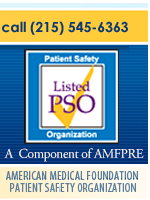Cardiac Surgery Peer Review
For over 300 hospitals, teams of prominent teachers of cardiac surgery, anesthesia and critical care, have joined AMF to improve quality in Cardiac Surgery Departments and entire heart services
We are well known for our Cardiac surgery department reviews which identifies factors contributing to adverse outcomes .The review of a cardiac surgery service may include analysis of the qualifications and past performances of the surgical and associated medical staff, physical resources, patient mix, and quality of ancillary and support services, such as internal medicine, cardiology (including echo, EKG, Holter and stress monitoring), interventional cardiology, nuclear cardiology, pacemaker implantation, anesthesia, nursing, perfusionists, procedures used for monitoring quality of care, policies regarding continuing education and problems identified by the institution.
Evaluation forms have been developed for cardiac surgery, interventional cardiology and other specialty programs. Prior to the site visit, data from the department are collected, utilizing the AMF evaluation forms for the specific specialty or subspecialty, along with both problem and randomly selected charts. The Foundation organizes a team of leading experts to review the data prior to the site visit of one to several days to observe procedures, interview staff recommendations specific to the needs of that department.
American Medical Foundation for Peer Review and Education (AMF), awarded and administered a two-million dollar Grant which was used to design a model program for teaching physicians in the safe and effective use of new technology and procedures. Our Foundation division, the Foundation for Advanced Medical Education (FAME), worked in collaboration with several specialty societies including The American Association for Thoracic Surgery and The Society of Thoracic Surgeons (AATS/STS). According to FAME Executive Director, Evelyn Baram-Clothier “This novel multi-Society cooperation developed a method for improving the quality of care and reducing medical errors during the introduction of new procedures into practice such as off pump cardiac surgery.” See the publication
Finding Team Causes for Excess Cardiac Surgical Mortality
A community hospital affiliated with a national health system was disturbed by a cardiac surgical mortality rate several times that expected and that of other hospitals in the system. Administration wished a review of the practice of the surgeons. AMF experts looked at all aspects of cardiac surgery including the surgeons; but also administration, anesthesia, or personnel, quality review mechanisms, ICU staffing, step-down unit staff and referral patterns from cardiology. They found that technically, the surgeons were performing at a satisfactory level, but that cardiac anesthesia was deficient, patients referred by interventional cardiologists were unduly high risk and several deaths occurred in the step-down unit as a direct result of deficient staffing and training in postoperative care of cardiac surgery patients. The AMF experts were able to make the appropriate recommendations for system improvement instead of the assumed sanction of the surgeons.

